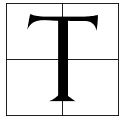Member-only story
Why Are the Chinese So Good at Maths?
 The stereotype is real. Chinese people (not everyone) are good at maths. Pick any global metric, and you’ll see — it doesn’t mean that they’re the best, quite the contrary. For instance, in the top 10 of the PISA 2018 rankings, seven countries are from East Asia (China, Macao, Singapore, Hong Kong, Taiwan, Japan, and Korea).
The stereotype is real. Chinese people (not everyone) are good at maths. Pick any global metric, and you’ll see — it doesn’t mean that they’re the best, quite the contrary. For instance, in the top 10 of the PISA 2018 rankings, seven countries are from East Asia (China, Macao, Singapore, Hong Kong, Taiwan, Japan, and Korea).

The Trends in International Mathematics and Science Study (TIMSS), in their 2019 assessment, offered an elaborate breakdown of their rankings; they rank students in each grade. Unsurprisingly, you’ll see the usual countries up there.
This also applies to competitive mathematics. In the International Mathematical Olympiad 2019, the top country was — as you’d expect — China. The United States is second.
We are all familiar with the stereotype. Now, try naming a famous Chinese mathematician.
Difficult, isn’t it?
If you’re like me, you would realise how ironic this feels. This irony deserves our attention. History should illuminate this.
Are the Chinese Outliers?
There are many reasons proposed by academics and researchers that explain this phenomenon.
Malcolm Gladwell, for example, in his book, Outliers argues that the simplicity and brevity of Chinese numbers made numbers easier to memorise. Contrary to English, numbers in Chinese are regular and ‘transparent’. Consequently, it makes rote learning easier.
I can attest to this. I’ve grown up learning everything (including maths and science) in Chinese. I hated it. I just can’t seem to grasp the language. But I must admit, though the voices in my head are mostly English, numbers (and chemical elements) are all in Chinese, even now.
Gladwell argues that because numbers in Chinese are so efficient insofar as children can grasp the system at a very young age (compared to the West), learning maths came easily and naturally to Chinese students.